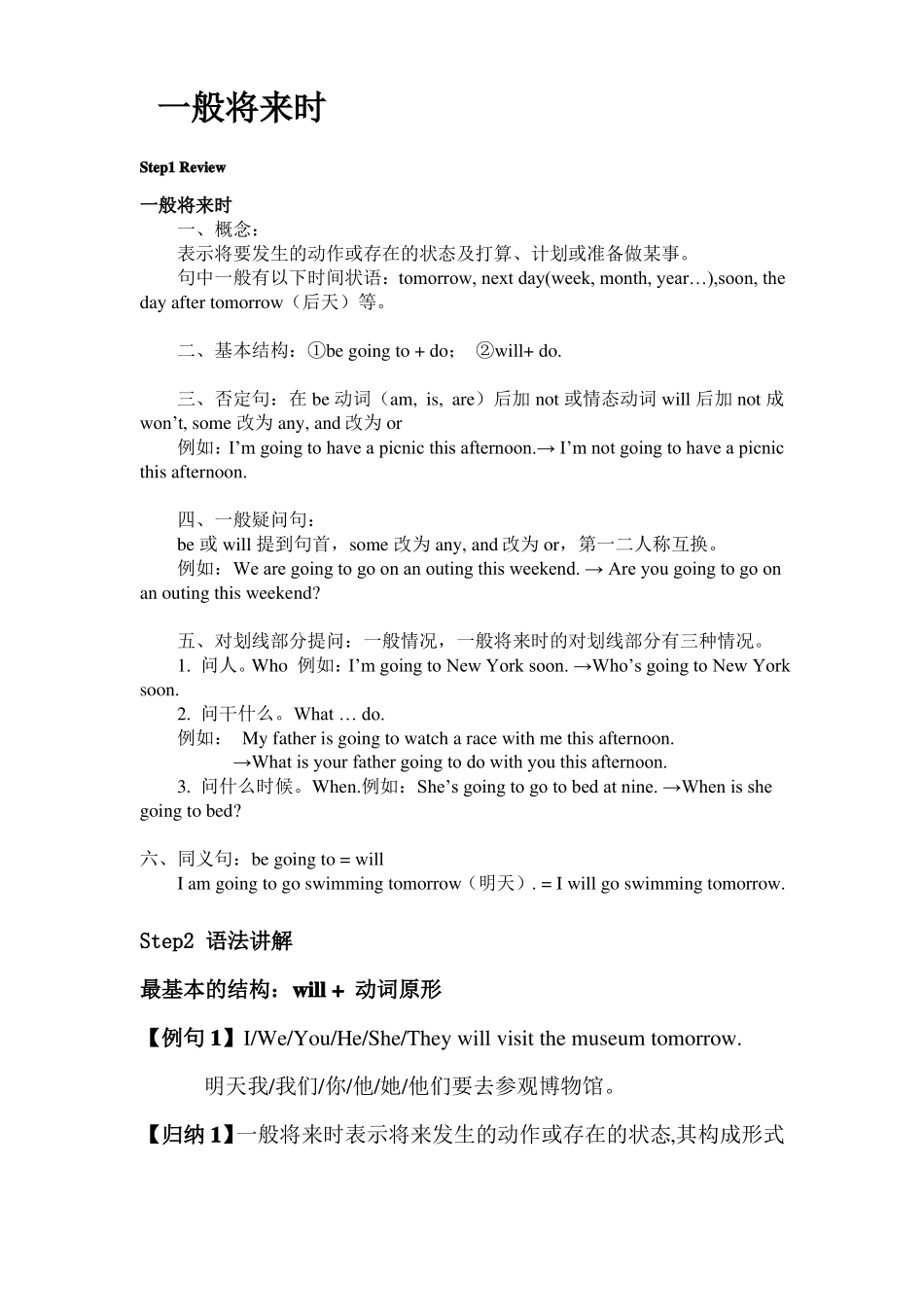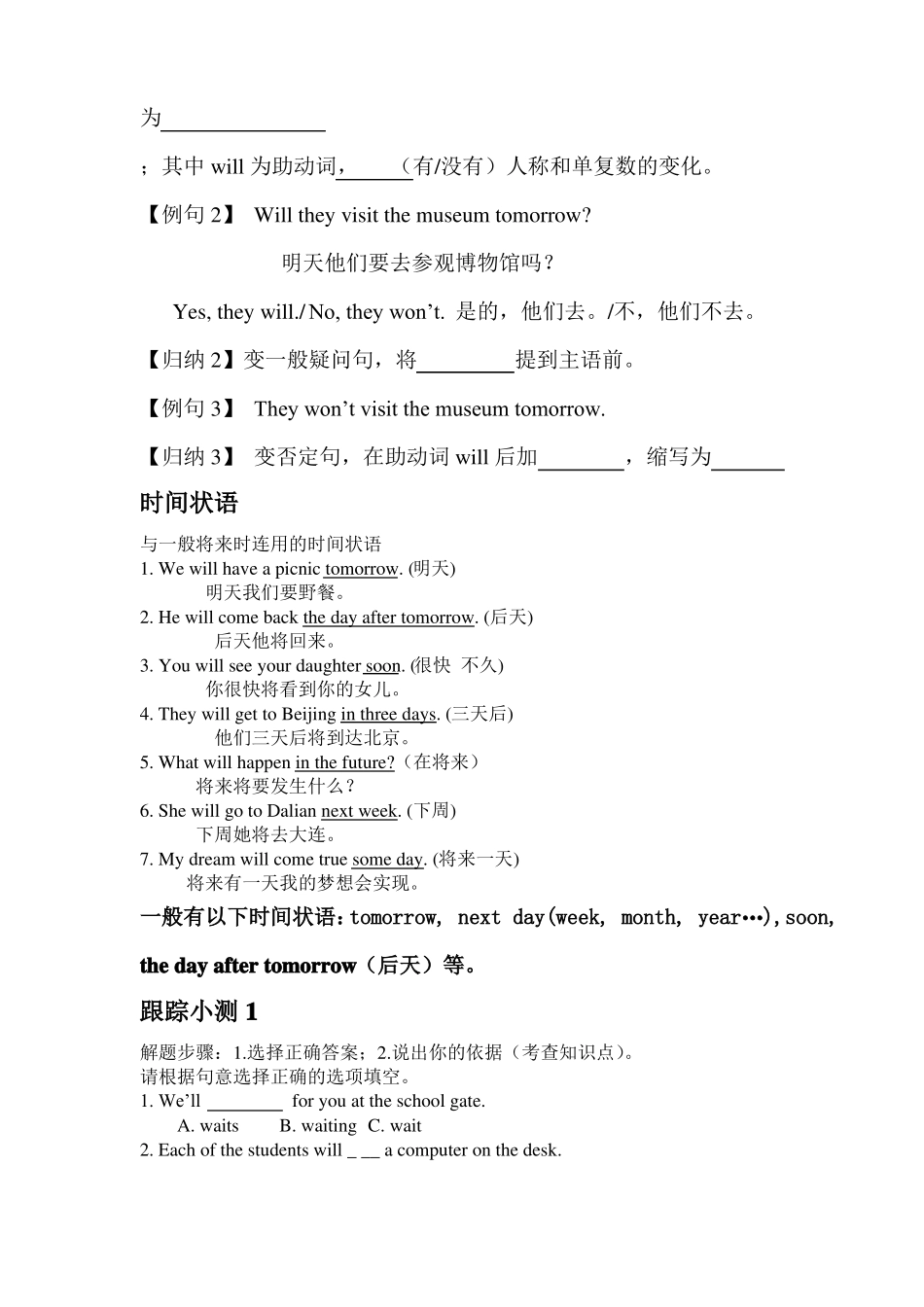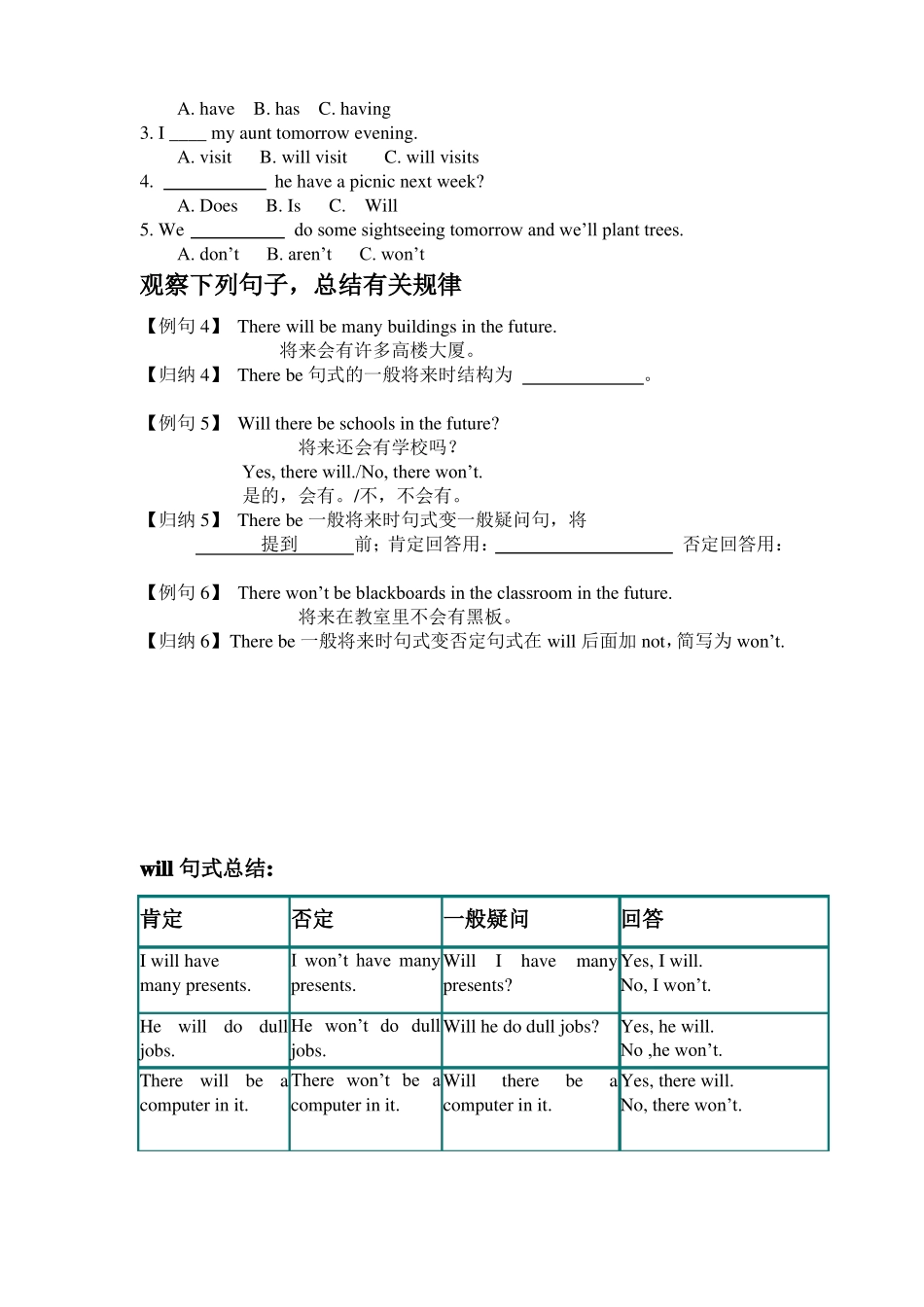一般将来时Step1 Review一般将来时一、概念:表示将要发生的动作或存在的状态及打算、计划或准备做某事。句中一般有以下时间状语:tomorrow, next day(week, month, year…),soon, theday after tomorrow(后天)等。二、基本结构:①be going to + do; ②will+ do.三、否定句:在 be 动词(am, is, are)后加 not 或情态动词 will 后加 not 成won’t, some 改为 any, and 改为 or例如:I’m going to have a picnic this afternoon.→ I’m not going to have a picnicthis afternoon.四、一般疑问句:be 或 will 提到句首,some 改为 any, and 改为 or,第一二人称互换。例如:We are going to go on an outing this weekend. → Are you going to go onan outing this weekend?五、对划线部分提问:一般情况,一般将来时的对划线部分有三种情况。1. 问人。Who 例如:I’m going to New York soon. →Who’s going to New Yorksoon.2. 问干什么。What … do.例如: My father is going to watch a race with me this afternoon.→What is your father going to do with you this afternoon.3. 问什么时候。When.例如:She’s going to go to bed at nine. →When is shegoing to bed?六、同义句:be going to = willI am going to go swimming tomorrow(明天). = I will go swimming tomorrow.Step2 语法讲解最基本的结构:will + 动词原形【例句 1】I/We/You/He/She/They will visit the museum tomorrow.明天我/我们/你/他/她/他们要去参观博物馆。【归纳 1】一般将来时表示将来发生的动作或存在的状态,其构成形式为;其中 will 为助动词,(有/没有)人称和单复数的变化。【例句 2】 Will they visit the museum tomorrow?明天他们要去参观博物馆吗?Yes, they will./No, they won’t. 是的,他们去。/不,他们不去。【归纳 2】变一般疑问句,将提到主语前。【例句 3】 They won’t visit the museum tomorrow.【归纳 3】 变否定句,在助动词 will 后加,缩写为时间状语与一般将来时连用的时间状语1. We will have a picnic tomorrow. (明天)明天我们要野餐。2. He will come back the day after tomorrow. (后天)后天他将回来。3. Yo...


